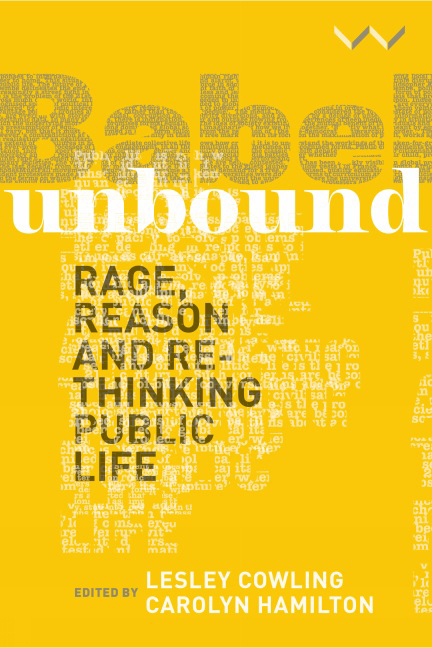Book contents
- Frontmatter
- Contents
- Acknowledgements
- Introduction
- Chapter 1 Rethinking Public Engagement
- Chapter 2 Tracing Public Engagements in Visual Forms
- Chapter 3 Media Orchestration in the Production of Public Debate
- Chapter 4 Fluid Publics: The public-making power of hashtags in digital public spaces
- Chapter 5 ‘Now We See Him, Now We Don’t’: The media and the ‘Black Pimpernel’
- Chapter 6 Archive and Public Life
- Chapter 7 Iconic Archive: Timbuktu and its manuscripts in public discourse
- Chapter 8 The Politics of Representation in Marikana: A tale of competing ideologies
- Chapter 9 Art-Rage and the Politics of Reconciliation
- Chapter 10 Anger, Pain, and the Body in the Public Sphere
- Contributors
- Index
Chapter 7 - Iconic Archive: Timbuktu and its manuscripts in public discourse
Published online by Cambridge University Press: 10 September 2020
- Frontmatter
- Contents
- Acknowledgements
- Introduction
- Chapter 1 Rethinking Public Engagement
- Chapter 2 Tracing Public Engagements in Visual Forms
- Chapter 3 Media Orchestration in the Production of Public Debate
- Chapter 4 Fluid Publics: The public-making power of hashtags in digital public spaces
- Chapter 5 ‘Now We See Him, Now We Don’t’: The media and the ‘Black Pimpernel’
- Chapter 6 Archive and Public Life
- Chapter 7 Iconic Archive: Timbuktu and its manuscripts in public discourse
- Chapter 8 The Politics of Representation in Marikana: A tale of competing ideologies
- Chapter 9 Art-Rage and the Politics of Reconciliation
- Chapter 10 Anger, Pain, and the Body in the Public Sphere
- Contributors
- Index
Summary
On the morning of 28 January 2013, just before the Franco-Malian recapture or liberation of Timbuktu after ten months of rebel occupation, the mayor of the city, Halle Ousmane, reported from his exile in Bamako that the Ahmed Baba Institute – home to thousands of African Arabic manuscripts – had been burnt by departing rebels. He had no other details. Thus, rumours about the burning of ‘the library of Timbuktu’ and more than ‘25 000 of its ancient manuscripts’ were born and spread like wildfire, making front-page headlines in the international media. Newspaper, radio and Internet reports spoke of the ‘barbaric’ nature of the ‘destruction of precious world heritage’, with clear undertones of a ‘clash of civilisations’ discourse. This was another proof of ‘Islamist’ depravity, of the irreconcilable differences between ‘us’ and ‘them’, of the ‘threat’ to the values of the civilised world from the ‘monsters’ with whom no dialogue is possible.
In addition to the initial reports, images soon began to surface. Alex Crawford, a Sky News journalist who was there with the French forces, aired footage from the new Ahmed Baba archive building, built by the South Africa of Thabo Mbeki's African Renaissance era. Impactful images showed empty manuscript preservation boxes thrown on the floor, burnt leather pouches and a pile of ashes, as an ‘Ahmed Baba worker’ narrated the utter destruction imparted by retreating insurgents. At the Tombouctou Manuscripts Project's office at the University of Cape Town, colleagues and I spent days responding to the frantic calls of journalists from all over the world. We advised caution in the light of unconfirmed reports and tried to clarify some questions about the manuscripts and their history: ‘No, we don't deal with scrolls; the majority of the manuscripts probably date from the late seventeenth and eighteenth centuries onwards and, as strange it may sound, the content of the manuscripts belongs to the categories of the classical Islamic-Arabic intellectual tradition.’
Internally, we insistently reached out to our colleagues in Timbuktu – those who remained, as the majority had left the city for the capital, Bamako, during the occupation – who for the previous eight days had suffered communications, electricity and water blackouts.
- Type
- Chapter
- Information
- Babel UnboundRage, Reason and Rethinking Public Life, pp. 144 - 182Publisher: Wits University PressPrint publication year: 2020



